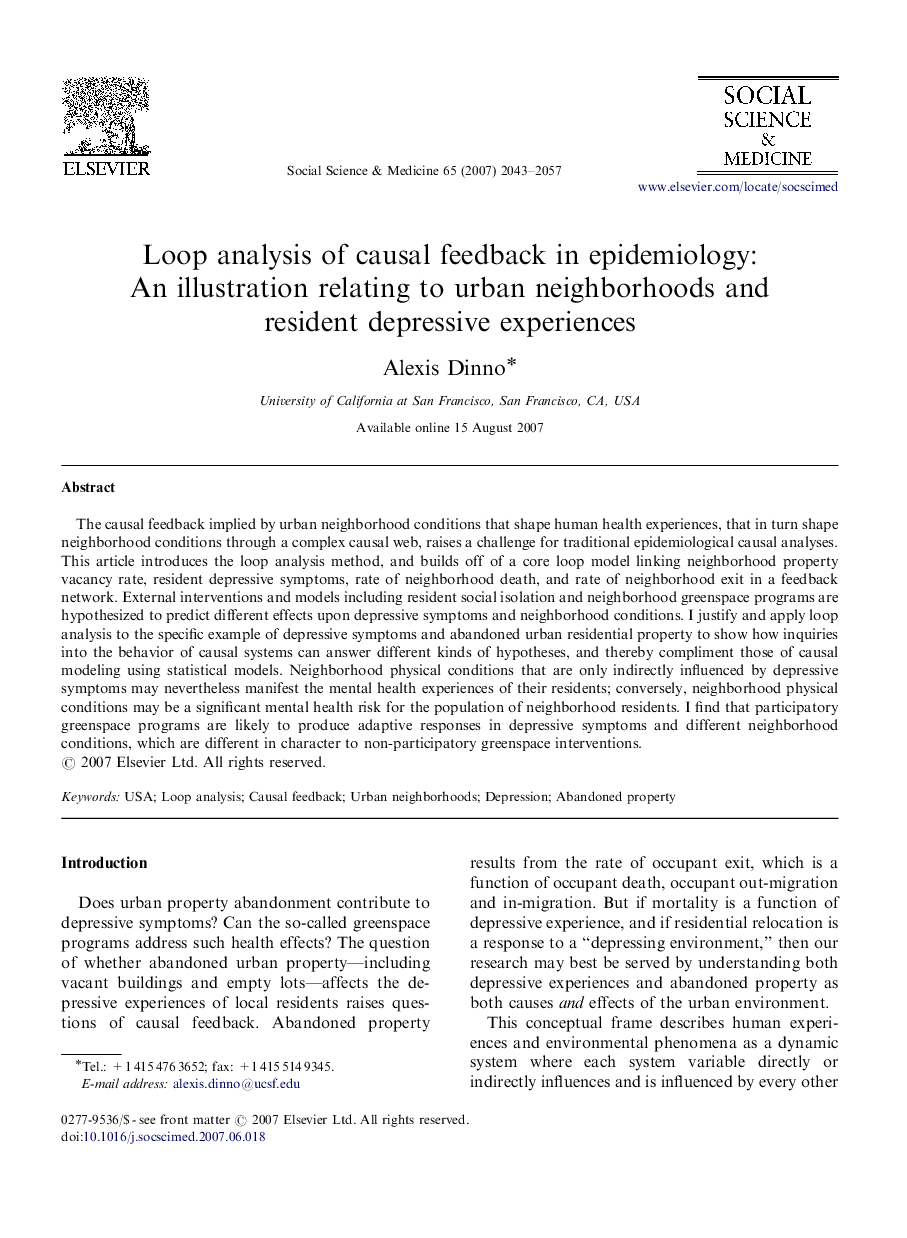| کد مقاله | کد نشریه | سال انتشار | مقاله انگلیسی | نسخه تمام متن |
|---|---|---|---|---|
| 954022 | 927621 | 2007 | 15 صفحه PDF | دانلود رایگان |

The causal feedback implied by urban neighborhood conditions that shape human health experiences, that in turn shape neighborhood conditions through a complex causal web, raises a challenge for traditional epidemiological causal analyses. This article introduces the loop analysis method, and builds off of a core loop model linking neighborhood property vacancy rate, resident depressive symptoms, rate of neighborhood death, and rate of neighborhood exit in a feedback network. External interventions and models including resident social isolation and neighborhood greenspace programs are hypothesized to predict different effects upon depressive symptoms and neighborhood conditions. I justify and apply loop analysis to the specific example of depressive symptoms and abandoned urban residential property to show how inquiries into the behavior of causal systems can answer different kinds of hypotheses, and thereby compliment those of causal modeling using statistical models. Neighborhood physical conditions that are only indirectly influenced by depressive symptoms may nevertheless manifest the mental health experiences of their residents; conversely, neighborhood physical conditions may be a significant mental health risk for the population of neighborhood residents. I find that participatory greenspace programs are likely to produce adaptive responses in depressive symptoms and different neighborhood conditions, which are different in character to non-participatory greenspace interventions.
Journal: Social Science & Medicine - Volume 65, Issue 10, November 2007, Pages 2043–2057